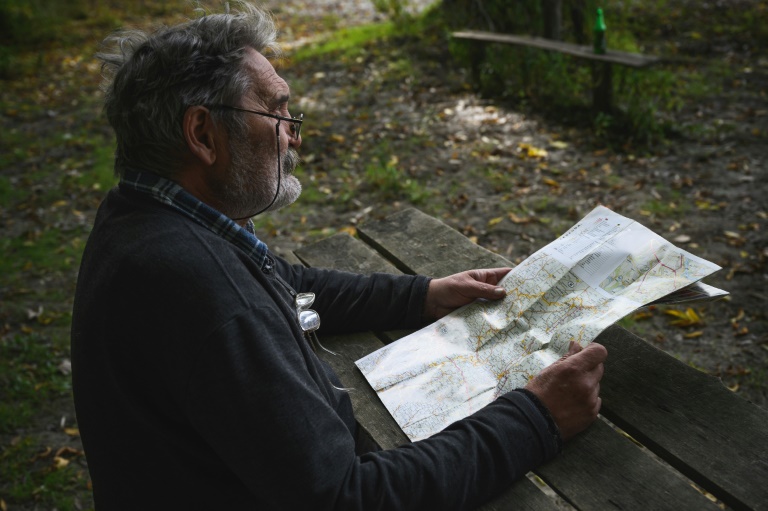For over three decades, Sandor Perzolt’s ancestral farm has resided in Serbia or Croatia, depending on the map. His family’s land near the Danube is locked in an ongoing dispute shaped by the river’s changing course.
The quarrel has left locals like Perzolt caught in an administrative tug of war, curtailing their livelihoods in a row that has the potential to become combustible.
Over the generations, Perzolt’s small patch of gentle farmland has seen kingdoms rise and fall with borders coming and going.
The meandering Danube has long served as a boundary throughout much of central and southeastern Europe, where the river divided competing empires and ethnic groups.
In the 1990s, new borders were again drawn following years of brutal fighting that saw Yugoslavia ripped apart and several republics emerge in its wake.
“I do have a feeling that I live in two countries”, the 64-year-old told AFP, while shucking corn with his wife.
The ongoing tussle over the area stems from different interpretations of where exactly the border lies.
For decades, Serbia has argued that the national boundary cuts through the centre of the river — wherever it may be flowing at the moment — with the land east of the Danube belonging to Belgrade.
Croatia, on the other hand, claims a smattering of enclaves along the Danube’s eastern banks, citing older maps that no longer reflect the river’s current course.
– Talking about talks –
The Perzolts and a small number of families residing in the disputed patches are left to manage the pitfalls that come with living in the territorial purgatory.
“After I got married in (the early) 1990s, I became a Croatian for the first time and I am still their citizen,” Perzolt explained.
“But I also received Serbian citizenship because I could not register my tractors otherwise.”
Zagreb continues to provide the family with state subsidies to farm.
Still, Perzolt is barred from selling his goods in Croatia because Croatian officials require customs duties for all products that move through its checkpoint on the opposite side of the river.
“You know the procedure… They would ask if I carry alcohol or cigarettes. We are not smugglers, we are farmers,” Perzolt said.
Most of the disputed 140 square kilometres (54 miles) of land is uninhabited and consists largely of forests and islands.
The area briefly made headlines in 2015 when a group of right-wing libertarians sought to exploit the overlapping claims and announced the formation of a new country — the “Free republic of Liberland” — on one of the river’s islands, only to be chased away by Croatian border police.
Croatian and Serbian authorities have made occasional attempts over the years at resolving the issue.
In the early 2000s, a joint commission was created to address the dispute but rarely met and offered no roadmap to move ahead.
And then in 2018, the presidents of Serbia and Croatia vowed to take the case to international arbitration if they failed to reach an agreement before 2020.
The deadline later passed with officials citing the pandemic as the reason for the delay.
“We expect that after international travel returns to normal as well as the practice of holding sessions, talks over establishing the border will continue,” said the Croatian foreign ministry in a statement.
– ‘Complicated and stupid’ –
Croatia — an EU member — has vowed to use the issue to block Serbia’s pathway to membership in the bloc if they fail to reach an agreement.
Serbian officials appear to have little appetite for conceding any land to their erstwhile rivals in Zagreb, come what may.
“It’s certain that the Republic of Serbia will not accept any arrangement that would imply trading our own territory,” Nemanja Starovic, a state secretary in the Serbian foreign ministry, told AFP.
Political analyst Aleksandar Popov said neither country appeared to be doing much to hammer out a deal, with both sides using “inflammatory rhetoric” instead.
Disagreements over scraps of land are common in several former Yugoslav countries, with Brussels warning EU aspirants in the Balkans that border disputes must be resolved before joining the bloc.
With no solution in sight, residents in the disputed areas remain stuck in the middle, with some longing for the days when the land was part of a single country and life was simpler.
“It is complicated and stupid,” said Petar Maksimovic, who owns a fish restaurant along the contested eastern riverbank.
Gone are the days, the fisherman explained, when he could cross the river with ease to help a friend with their harvest or enjoy a glass of wine.
“In order to visit my old friends on the Croatian side… I need my passport and a vaccination pass,” Maksimovic told AFP.
“Now, I don’t even go anymore.”









